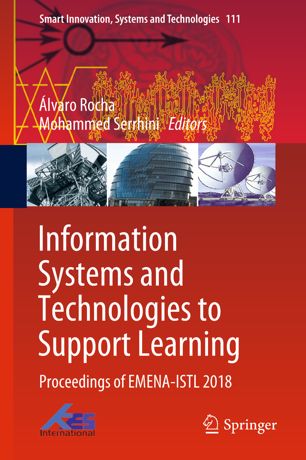

Most ebook files are in PDF format, so you can easily read them using various software such as Foxit Reader or directly on the Google Chrome browser.
Some ebook files are released by publishers in other formats such as .awz, .mobi, .epub, .fb2, etc. You may need to install specific software to read these formats on mobile/PC, such as Calibre.
Please read the tutorial at this link: https://ebookbell.com/faq
We offer FREE conversion to the popular formats you request; however, this may take some time. Therefore, right after payment, please email us, and we will try to provide the service as quickly as possible.
For some exceptional file formats or broken links (if any), please refrain from opening any disputes. Instead, email us first, and we will try to assist within a maximum of 6 hours.
EbookBell Team

5.0
68 reviewsThis book features a selection of articles from the second edition of the conference Europe Middle East & North Africa Information Systems and Technologies to Support Learning 2018 (EMENA-ISTL'18), held in Fez, Morocco between 25th and 27th October 2018. EMENA-ISTL’18 was a global forum for researchers and practitioners to present and discuss recent findings and innovations, current trends, professional experiences and challenges in information systems & technologies to support learning.
The main topics covered are: A) information systems technologies to support education; B) education in science, technology, engineering and Mathematics; C) emerging technologies in education learning innovation in the digital age; D) software systems, architectures, applications and tools; E) multimedia systems and applications; F) computer communications and networks; G) IOT, smart cities and people, wireless, sensor and ad-hoc networks; H) organizational models and information systems and technologies; I) human–computer Interaction; J) computers & security, ethics and data-forensic; K) health informatics, and medical informatics security; l) information and knowledge management; m) big data analytics and applications, intelligent data systems, and machine learning; n) artificial intelligence, high performance computing; o) mobile, embedded and ubiquitous systems; p) language and image processing, computer graphics and vision; and q) the interdisciplinary field of fuzzy logic and data mining.